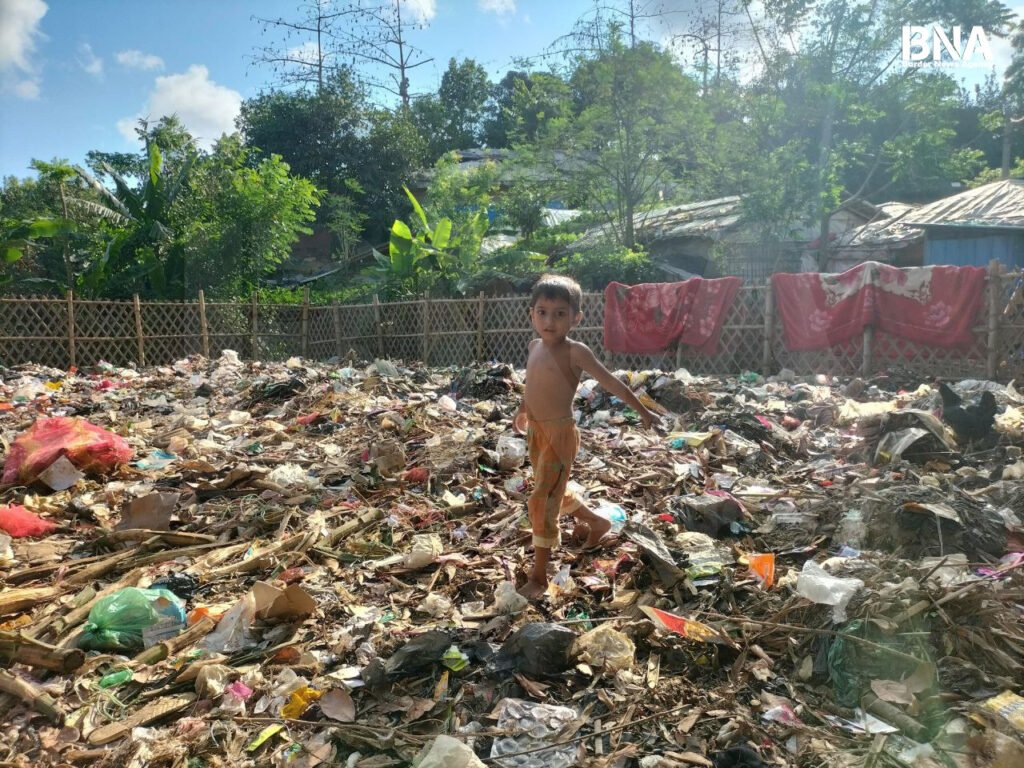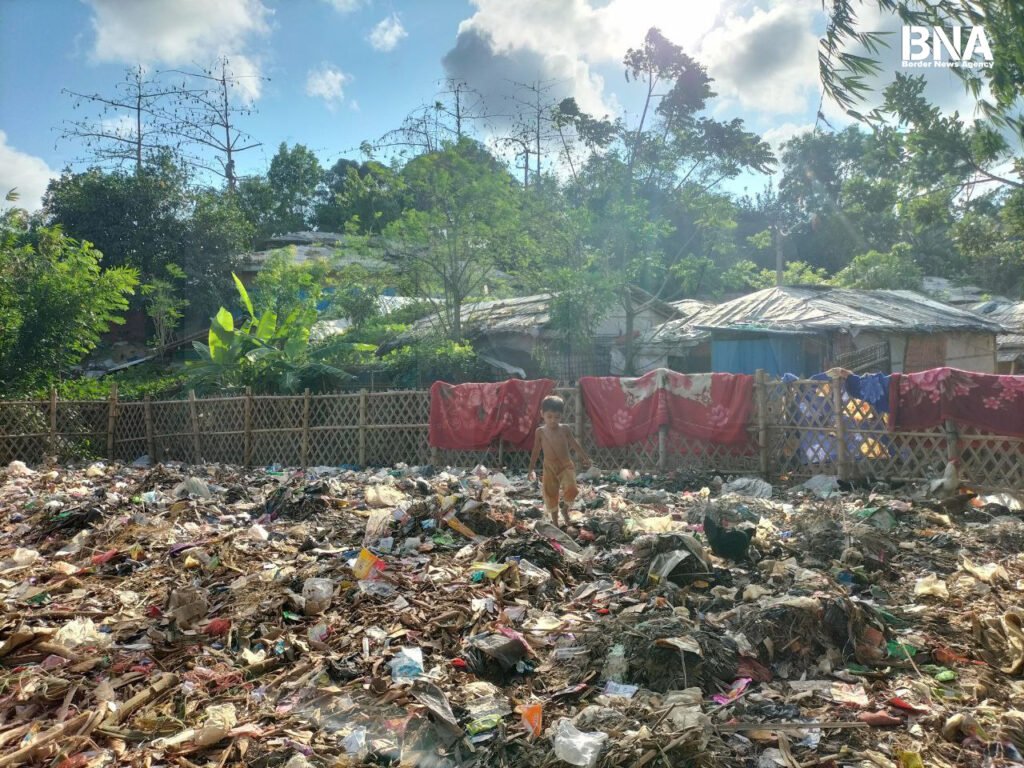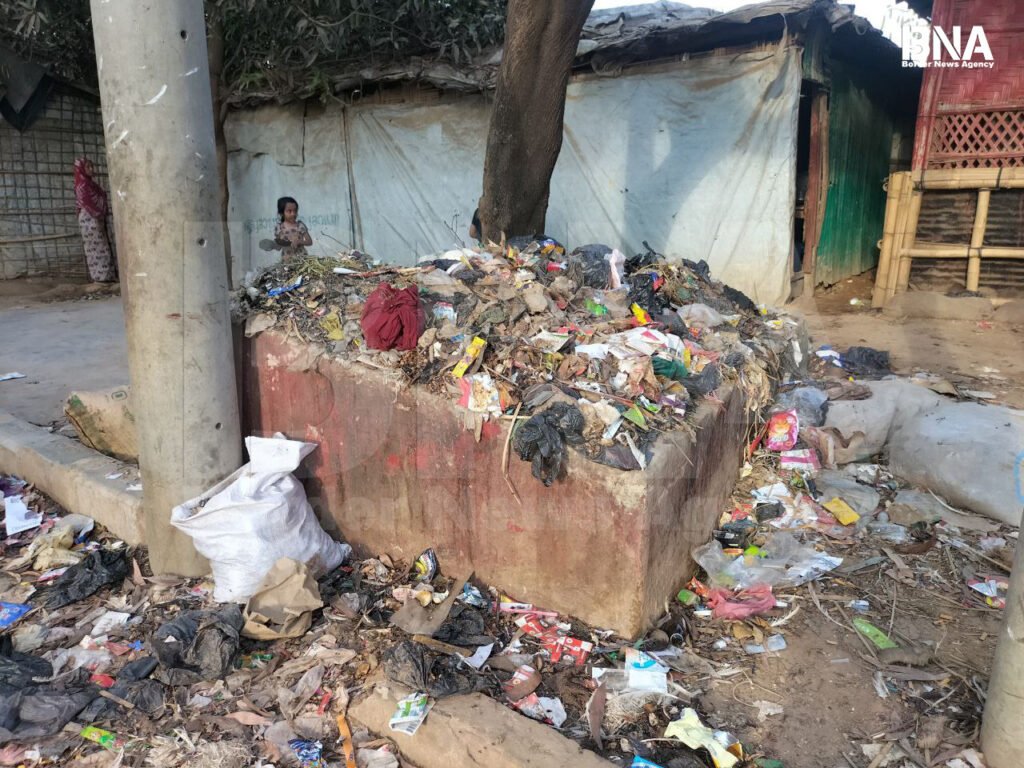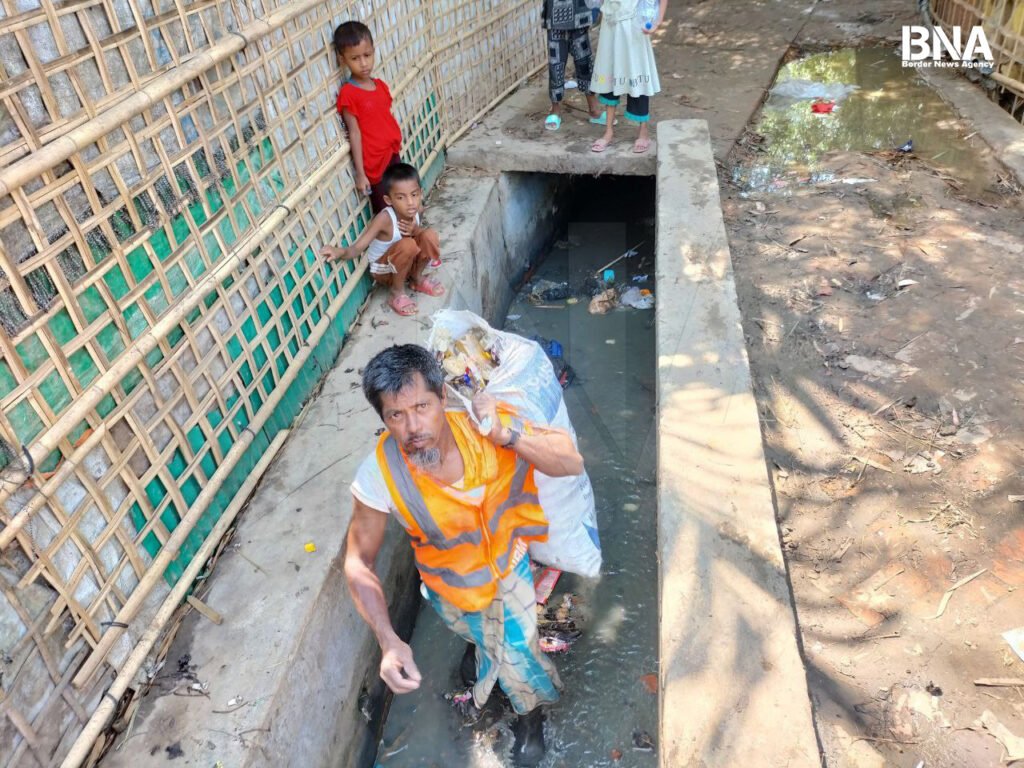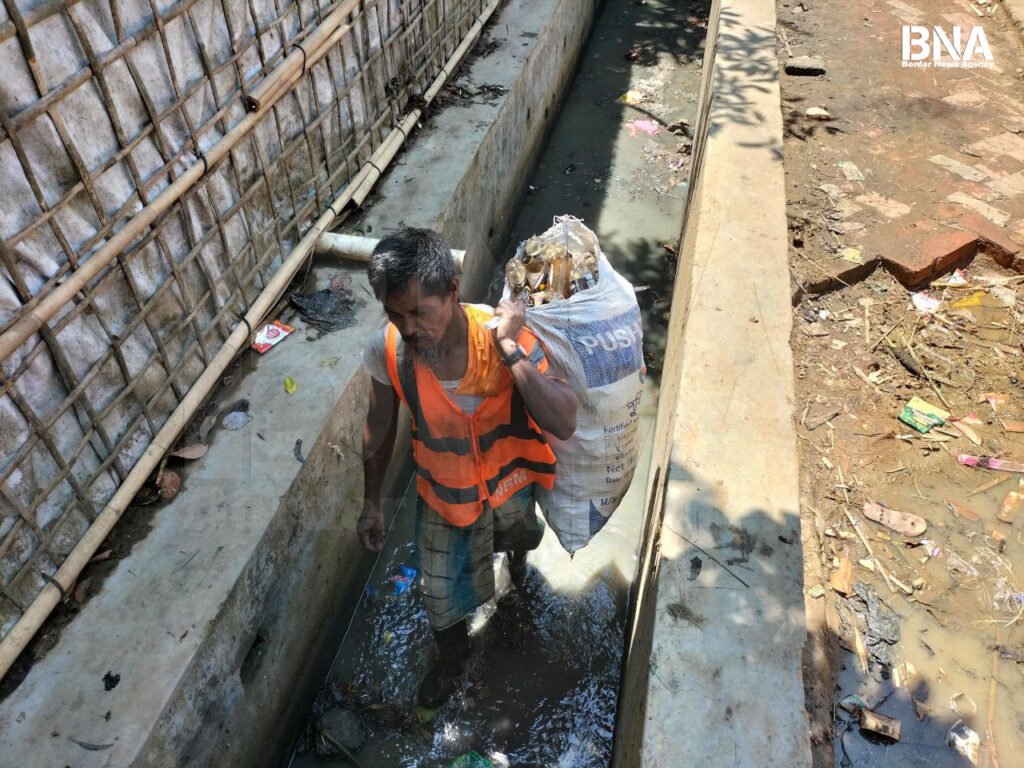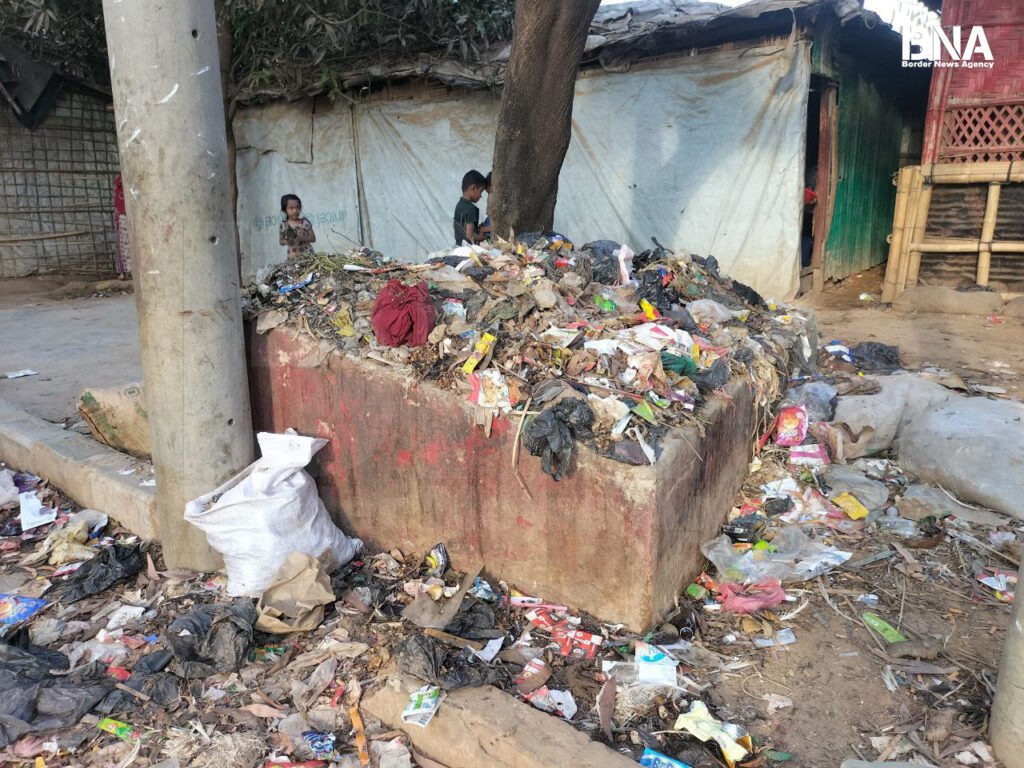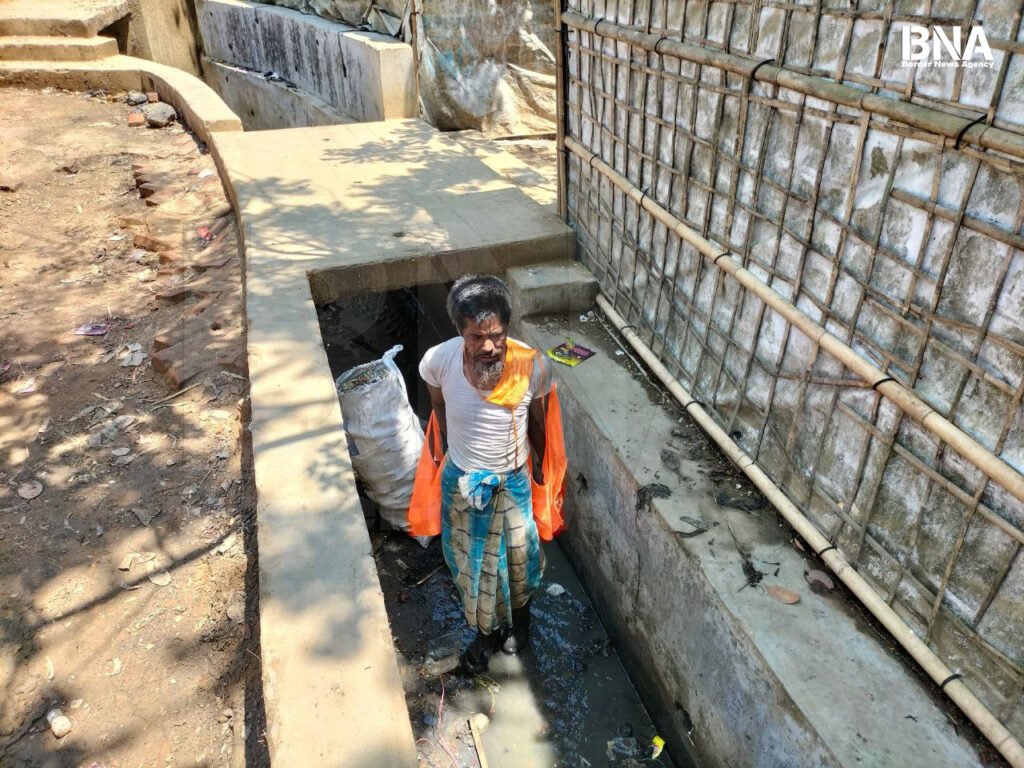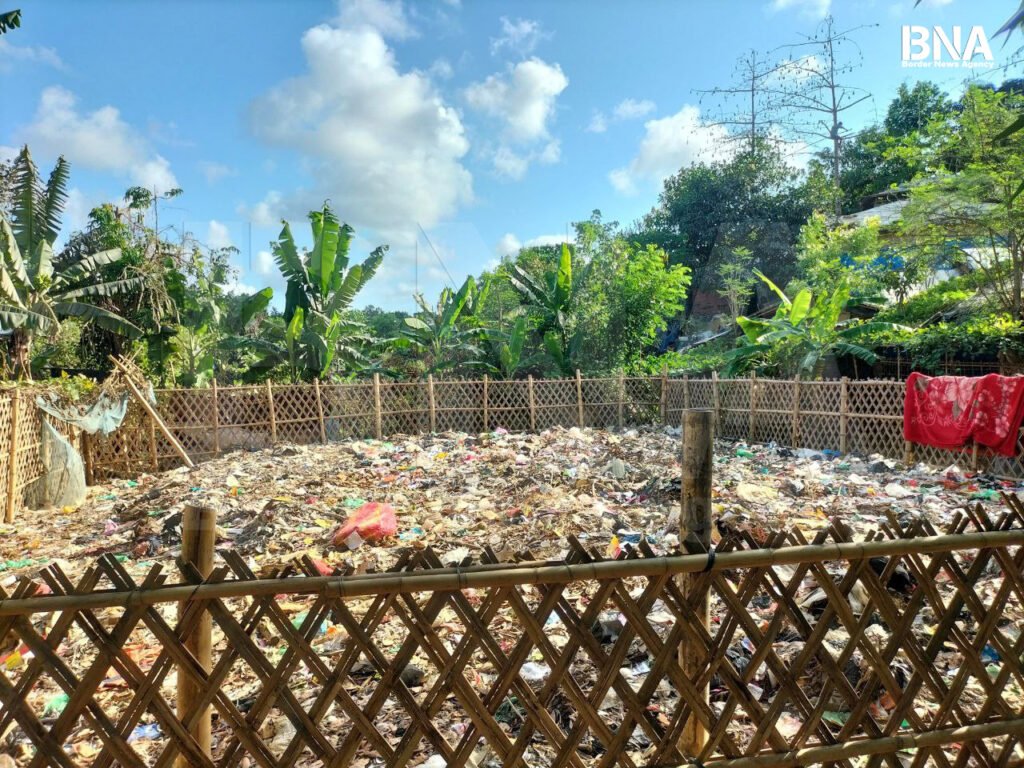Shocking images from inside the Rohingya refugee camps in Bangladesh reveal an unfolding public health crisis as garbage piles up in living areas, with little to no proper waste management in place.
The photos, taken in the world’s largest refugee settlement in Cox’s Bazar, show overflowing bins, mounds of mixed waste covering open spaces, and children walking barefoot through garbage-strewn areas, stark visuals that highlight long-standing sanitation gaps in the camps.
In one image, trash overflows from a concrete container with plastics, rotting food, and medical waste spilling onto the ground. Children and families live just meters away. Another image shows a vast dumping site filled with household refuse, where a toddler walks among the debris while animals forage nearby.
These conditions pose a grave risk to the more than 900,000 Rohingya refugees, especially children, elderly people, and those with weakened immunity. Health experts warn that the camps are on the brink of a sanitation catastrophe, with uncollected waste increasing the risk of cholera, diarrhea, respiratory infections, and vector-borne diseases like dengue.
“Uncollected garbage doesn’t just pollute the environment; it creates deadly health hazards. Children playing in trash is not just a sign of poverty, it’s a sign of systemic failure,” said a humanitarian health worker from the camps.
Despite repeated warnings by NGOs and community leaders, solid waste management remains one of the most underfunded and overlooked areas in humanitarian response efforts. According to UN data, funding for the 2024 Joint Response Plan was critically low, forcing reductions in key services, including sanitation, food, and healthcare.
Community activists are calling for urgent international attention and sustainable intervention to address this worsening crisis. “The Rohingya community fled genocide. They should not have to live surrounded by garbage and disease. Clean living conditions are not a luxury, they are a right,” said one Rohingya volunteer in the camps.
As monsoon season looms, the risks grow ever greater. Without a rapid and coordinated cleanup effort, the already vulnerable population could face outbreaks that threaten to overwhelm the limited healthcare facilities in the camps.
This is not just a local issue, it’s a global humanitarian concern. The images speak for themselves: urgent action is needed to restore basic human dignity and prevent a health emergency.
